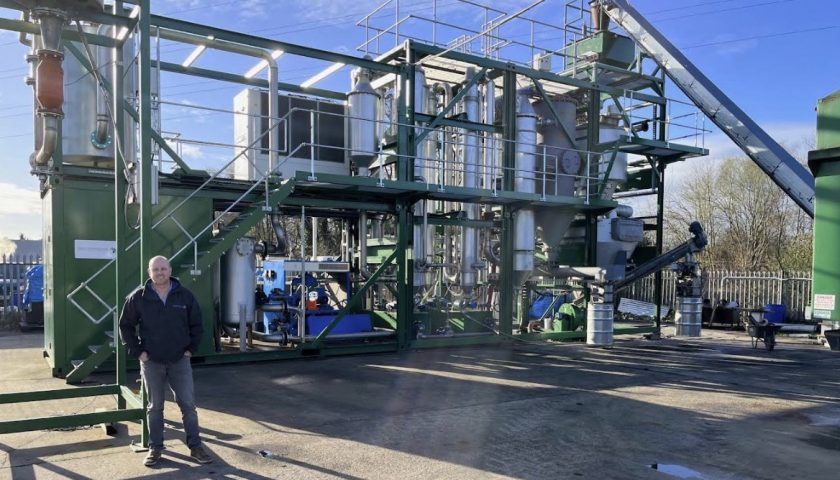UK Government funding boost for renewable energy innovation in Deeside

An innovative Deeside-based biomass project is one of three in Wales to be awarded a share of nearly £2.5 million in UK government funding.
The funding is part of a £37 million package across the UK, aimed at driving forward plans to scale up domestic renewable energy, including from biomass.
Biomass, a sustainable plant material, can be used to produce biofuels and sustainable aviation fuels, or to create chemicals for household cleaning products and bio-plastics.
Biomass’ ability to deliver at scale has already been proven, having generated 12.6% of total UK electricity in 2020, forming an important part of plans to generate more home-grown power and strengthen Britain’s energy security.
Compact Syngas Solutions (CSS) has secured nearly £250,000 from the Department for Business, Energy and Industrial Strategy (BEIS).
The funding comes from the Low Carbon Hydrogen Supply 2 Programme, which is part of the Net Zero Innovation Portfolio.
CSS and its three project partners are now set to forge ahead with a bid to make clean, green, low-emission hydrogen fuel a reality for the vehicles on our roads using waste that would normally be sent to landfill.
Energy Minister, Greg Hands, said: “Wales has a key role to play as we accelerate renewables like biomass to end our dependency on fossil fuels and boost our energy independence.
“This £2.5 million UK government investment will support biomass innovation in Wales, boosting jobs and investment, and ensuring we have the homegrown supply we need to support our future green energy mix.”
Backed by the independent Climate Change Committee, biomass will form an important part of the UK’s future renewable energy mix, which will be vital for ensuring the UK’s energy security and reducing reliance on expensive fossil fuels.
Through Phase 2 of the Biomass Feedstocks Innovation Programme, projects will be developed from the design stage, which was supported with £4 million government funding, into full demonstration projects, showcasing new methods to grow sustainable biomass materials, which can be used to produce low-carbon energy. The projects will boost biomass productivity in the UK, through breeding, planting, cultivating and harvesting of organic energy materials.
The Hydrogen BECCS Innovation Programme supports the development of technologies to produce hydrogen generated via “BECCS” (BioEnergy with Carbon Capture and Storage).
BECCS technology can uniquely offer the ability to remove carbon dioxide from the atmosphere, as the CO2 absorbed during the growth of the sustainable biomass and the organic content found in waste can then be permanently removed from the atmosphere using carbon capture technologies.
Hydrogen BECCS technologies will support the government’s plan to build a hydrogen economy, making hydrogen a clean fuel to use in hard-to-decarbonise sectors such as transport and heavy industry, while also removing greenhouse gases from the atmosphere.
Today’s funding recipients in Wales also include:
- Aberystwyth University has received over £2 million for their ‘Miscanspeed’ project, looking at accelerating the breeding of high-yielding, resilient miscanthus (elephant grass) – grass varieties that are well-suited for biomass use
- The University of South Wales has received £238,858 for their BIOHYGAS project, to produce hydrogen and CO2 from sewage waste
Spotted something? Got a story? Email: [email protected]
Latest News
